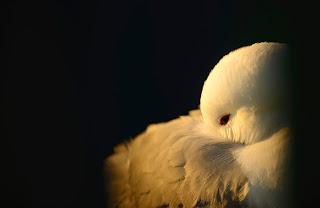
Ben Andrew (rspb-images.com)
The kittiwake (a small species of gull), has been added to the list of birds considered to be facing the risk of global extinction.The latest annual revision of birds on the IUCN Red List, which has been announced by BirdLife International on behalf of the IUCN, brings the total number of UK bird species considered to be facing the risk of extinction to nine (see note).
Globally, the species is thought to have declined by around 40% since the 1970s, justifying its uplisting from Least Concern to Vulnerable. Climate change and fishing that sets aside too little for the birds are pushing the kittiwake closer to extinction.
Alarming trends have been recorded in the UK’s kittiwake numbers, particularly in Orkney and Shetland where breeding birds have declined by 87% since 2000, and on St Kilda in the Western Isles where as much as 96% of the breeding population has been lost.
Laura Bambini, the RSPB Scotland’s seabird recovery officer said, “Some efforts are underway to protect important seabird foraging areas in international waters, but there is much more we could do around the UK to protect our internationally important and increasingly threatened seabird populations.”
In the North Sea, sandeels provide a vital food source for breeding seabirds and they are crucial to the breeding success of kittiwakes. However, they are also the target of an industrial sandeel fishery.
Recent research has shown that UK seabird populations depend on the same sandeel stocks as this industrial fishery, highlighting the importance of continuing to work with other countries on fisheries management after leaving the European Union.
Rising sea temperatures due to climate change also threaten sandeels, so kittiwake food supplies could be affected by both local and large-scale processes.
“We need to ensure that the future management of the sandeel fishery is sustainable. If our internationally important populations of seabirds are going to cope with climate change, then we need to make sure industrial fisheries are not adding to their problems”, said Dr Euan Dunn, the RSPB’s Marine Policy Specialist.
“This is an example of why fisheries policy is vital to the health of our seas. Our thinking on fisheries and marine protection must be as joined up as the seas on which we all rely.

